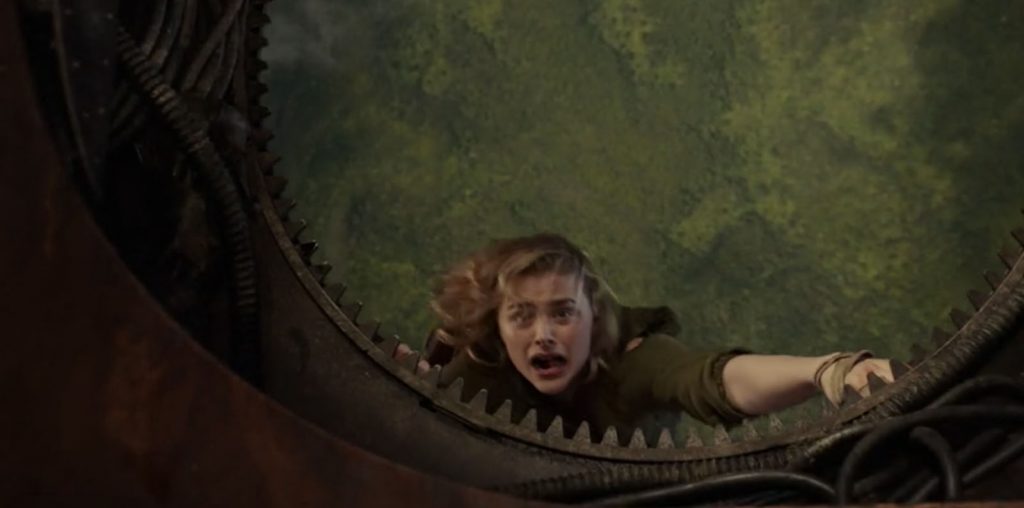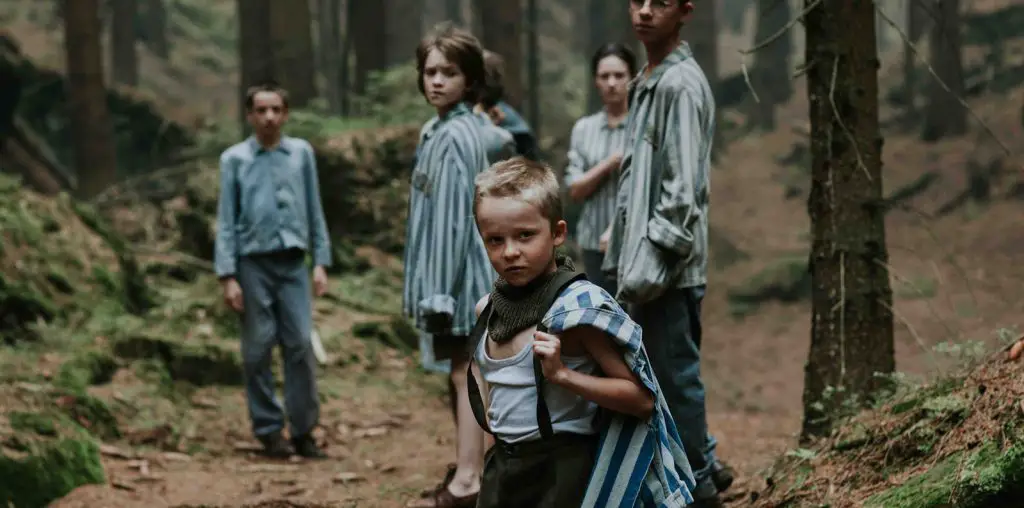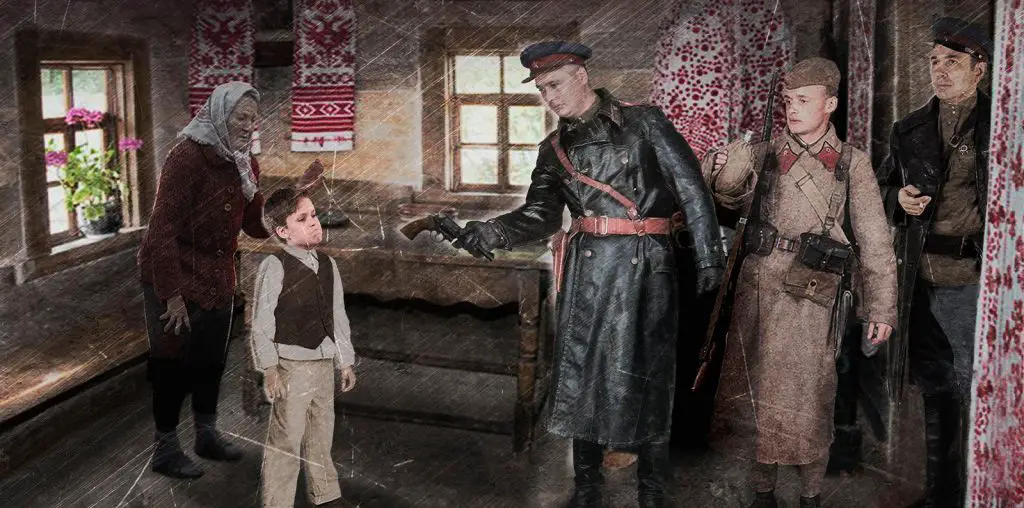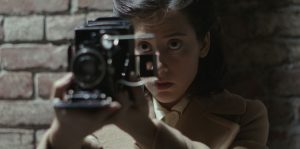
Under Darkness is a short film that tells the true story of Faye Schulman, a young Jewish woman who, following the murder of her family by Nazis, joined the Soviet partisans and discovered a new use for her budding photography skills. For Faye (Kally Khourshid), her camera became a weapon for resistance, a tool for recording the atrocities of World War II, and a method for humanizing the partisan struggle in Eastern Europe during a time when Nazis were systematically degrading and killing Jews across the continent.
The majority of the film’s plot functions as a long flashback, taking viewers on a journey through the events that led to the dramatic opening sequence, which first introduces us to Faye and her story. It begins with a title card stating that the year is 1942 and that “the Nazis have taken control of Poland.” It then cuts to Faye, panicked and desperate, racing through snow-clad woods in the dead of night.
For a serious and sentimental WWII biopic, Under Darkness is refreshingly crisp and concise. In fact, the short could be used as a classroom example for teaching aspiring filmmakers the power of pacing – a notable achievement considering the film was, itself, written and directed by Caroline Friend, a student at the University of Southern California.
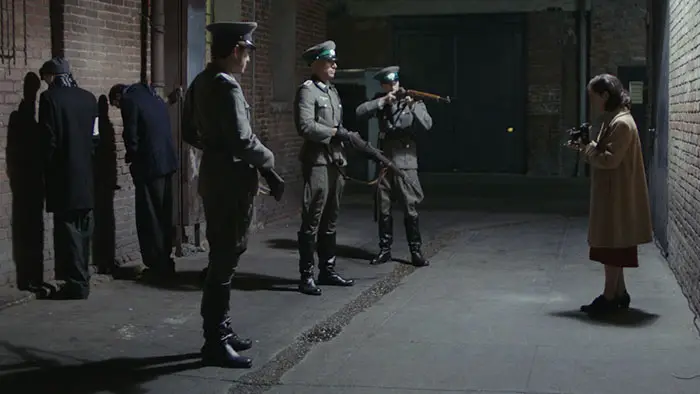
“For Faye, her camera became a weapon for resistance, a tool for recording the atrocities of World War II…”
Visually, it is quite striking. Brian Tang’s movement-heavy cinematography complements the brisk editing. When Nazis burst into Faye’s home, separating her from her family, the off-kilter camerawork places us right in the middle of the frenzied and tightly packed room. Surrounded by chaos, we can’t help but get caught up in the intensity of the moment, which is supported by Duy Tran’s powerful score. The music in Under Darkness is evocative without being overly sentimental or overbearing.
Within its sharp twenty-minute runtime, we watch a handful of other comparably forceful sequences that are likely based on actual anecdotes from Schulman herself. Friend interviewed Schulman while writing the film’s script, which adds to the authenticity immeasurably. One disturbing scene depicts the moment Faye was required to photograph a faux execution while being forced to work as a photographer for Nazi soldiers.
Later, we watch Faye have an emotional breakdown after developing a photo sent to her from the concentration camp that her family was taken to. The image shows hundreds of dead bodies piled on top of one another. Khourshid delivers a well-balanced performance, bringing raw energy and vulnerability to each of these scenes while exuding a quiet and subtle sense of self-assuredness in others.
These flashback sequences are more than just strong standalone moments, however. They also serve to move the viewer swiftly through the story while bolstering the strength of its themes – i.e., the power of the image and the importance of documentation. Photography becomes the narrative throughline, and Faye’s camera is a visual motif. Under Darkness is itself a series of moving images that add a self-reflexive layer to these ideas. Friend’s images now serve the same purpose as Faye’s photographs: to remember.
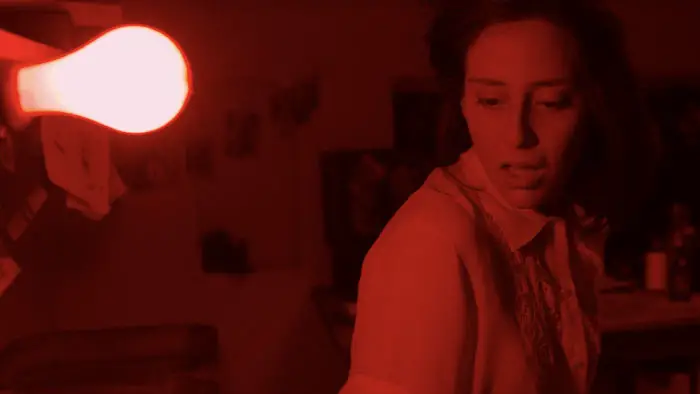
"…refreshingly crisp and concise."
